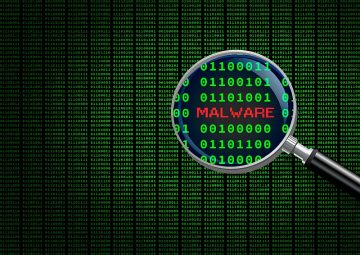WezRat Malware is A Powerful Tool for Data Theft

WezRat is a sophisticated piece of malware written in C++ and designed for data theft and espionage. Active for over a year, this malicious tool has evolved significantly, with cybercriminals continuously enhancing its modules and infrastructure. Recently, the latest version of WezRat was found being distributed via deceptive phishing emails, posing a growing threat to individuals and organizations alike.
Table of Contents
What is WezRat and What Can It Do?
WezRat is designed to steal sensitive information and execute various malicious activities. Once it infiltrates a system, it begins by collecting system information, including:
- User profile paths.
- Local machine IPs.
- Computer names.
- Usernames.
This data is often used to download additional malicious modules tailored to the compromised system.
Core Capabilities of WezRat:
- Command Execution: Threat actors can remotely execute commands on the infected machine.
- File Uploading: WezRat can transfer files from the victim's system to a remote server for data theft or further exploitation.
- Screenshot Capture: It can take snapshots of the user’s screen to gather sensitive information.
- Keylogging: WezRat records every keystroke, potentially capturing login credentials, credit card details, and other private data.
- Clipboard Monitoring: It accesses and steals copied text, such as passwords or financial information.
- Cookie Theft: Cybercriminals use cookies harvested by WezRat to hijack user sessions and gain unauthorized access to online accounts.
By combining these capabilities, WezRat serves as a versatile and dangerous tool for espionage and theft.
How Does WezRat Spread?
The primary distribution method for WezRat involves phishing emails. One notable campaign impersonates the Israeli National Cyber Directorate (INCD) to trick recipients into downloading the malware.
Here’s how the attack works:
- The email urges recipients to update their Chrome browser.
- A link in the email directs users to a fake website resembling the legitimate INCD site.
- Clicking the link downloads a file named Google Chrome Installer.msi, which contains two components:
- The legitimate Chrome installer.
- A backdoor file called Updater.exe.
When executed, the backdoor connects to a remote server, ensures persistence by adding itself to the system registry, and facilitates the delivery of WezRat.
Other Distribution Methods:
WezRat can also spread through:
- Pirated software.
- Malicious advertisements.
- Fake technical support scams.
- Exploitation of software vulnerabilities.
- Peer-to-peer (P2P) networks.
- Deceptive websites.
Protecting Yourself Against WezRat
Given the evolving nature of malware like WezRat, staying vigilant and implementing strong cybersecurity practices is essential.
Key Prevention Tips:
- Update Regularly: Keep your operating system, browsers, and applications updated to patch security vulnerabilities.
- Download From Trusted Sources: Use only official websites or app stores for software and updates.
- Avoid Suspicious Emails: Do not open files or links in unsolicited or unexpected emails, especially from unknown senders.
- Steer Clear of Malicious Ads: Refrain from interacting with ads, pop-ups, or links on untrustworthy websites.
- Use Reliable Security Software: Install reputable antivirus and anti-malware programs and keep them up to date.
What to Do If Your Computer is Infected
If you suspect that WezRat or any other malware has compromised your system:
- Disconnect from the internet immediately to limit further damage.
- Run a comprehensive scan using a trusted anti-malware tool to detect and remove the malware.
- Change your passwords, especially for critical accounts, using a secure device.
- Monitor your accounts for unusual activity and consider enabling two-factor authentication (2FA).
Conclusion
WezRat is a formidable threat, capable of stealing sensitive information through advanced techniques like keylogging, clipboard monitoring, and cookie theft. Distributed through deceptive phishing campaigns and other malicious channels, this malware underscores the importance of vigilance and robust cybersecurity measures.
By staying informed, avoiding suspicious links, and using reliable security software, you can significantly reduce your risk of falling victim to WezRat and similar malware threats.








